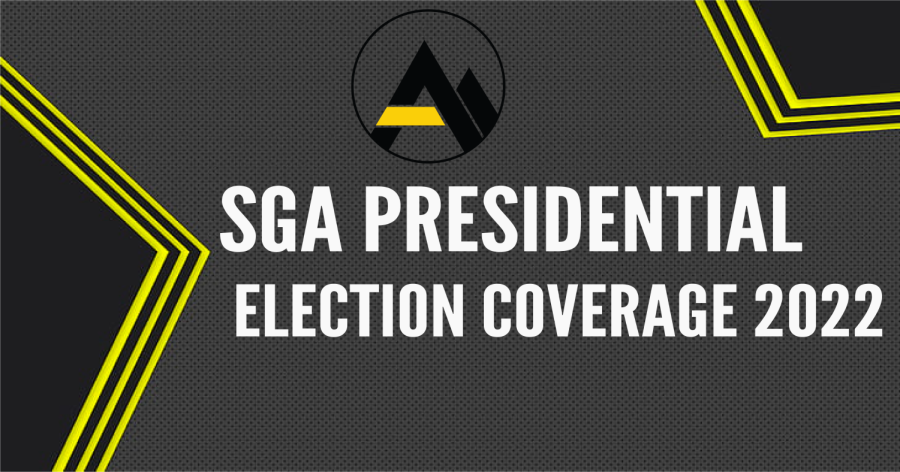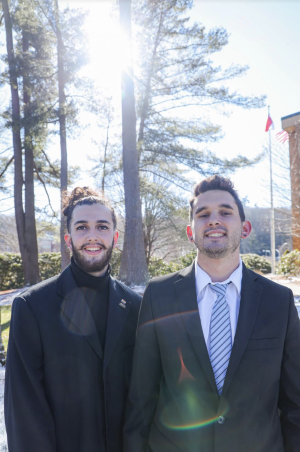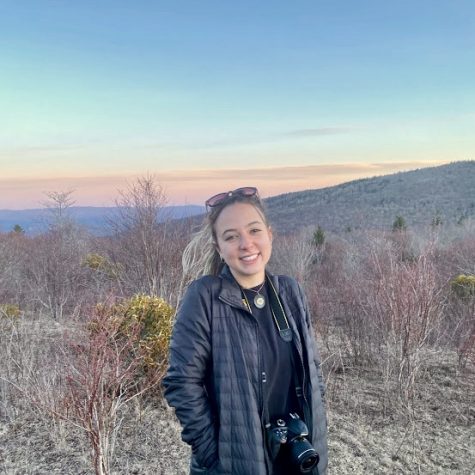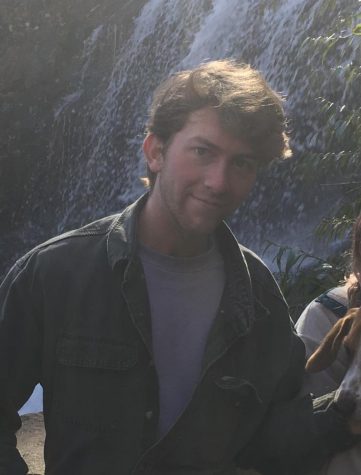SGA president, vice president candidates debate
February 11, 2022
Candidates for the Student Government Association president and vice president met for a live debate in Belk Library Thursday at 5:30 p.m.
There are three tickets: Connor Ranes for president and Ben Negin for vice president, Quson Brown for president and Alejandro Barreto for vice president, and Evan Martino for president and Christian Martin for vice president.
Political science professor Phillip Ardoin moderated the debate and sophomore SGA senator Gabe Montalbano hosted it.
Candidates began the debate with three-minute opening statements. To summarize each pair’s goals for their presidency, Ardoin asked what three tangible goals each campaign plans to achieve during their eight months in office.
The Brown/Barreto campaign said lowering parking and dining hall prices, getting more students involved in policy decisions and creating a foundation for next year’s SGA administration were their goals for the coming year.
The Ranes/Negin campaign said they would focus on acquiring more parking permits for students, raising the student employment minimum wage to $12 an hour and implementing optional mental health days.
The Martino/Martin campaign said their first eight months in office would include tri-weekly presidents’ council meetings, building relationships with other campus organizations and making course evaluations public. The Martino/Martin campaign included additional initiatives from their “four pillars for mountain-sized change” platform in the team’s opening statement.
The debate
Overall topics covered in the debate included relationships with university administration, changes to SGA documents, minimum wage on campus and plans to engage students on campus.
The debate began with discussions of each campaign’s goals.
Both the Ranes/Negin campaign and the Brown/Barreto campaign discussed parking. Ranes said he wants to increase the amount of parking permits available to students. Brown said he serves on the parking and transportation board, and students have told him parking prices are too high.
Each campaign also addressed how they would engage students in student government. The Ranes/Negin campaign prioritized visibility.
“Visibility is super important. As I prior mentioned, I have been organizing drag shows in the local Boone community this entire school year. That just goes to show I know how to organize people. I know how to bring a community together,” Negin said.
Brown said authenticity was essential to including students in student government.
“Being authentic and who you are is genuinely going to get students more involved,” Brown said. “If anyone knows who I am, they’ll tell you I talk about student government every single day. Not every hour, just every other hour.”
The Martino/Martin campaign highlighted their tri-weekly presidents’ council meetings and proposed town halls as a way to involve students.
“At the end of the day, Evan and I are two people so we don’t know everything that’s going on on campus,” Martin said. “So it’s important to note that if something is going wrong, the students should have the opportunity to voice that.”
The campaign teams also discussed how they would achieve their proposed initiatives.
“While many of our ideas and policies are aspirational, much more are actually attainable,” Martino said.
Some of the Martino/Martin campaign’s “attainable” goals include making course evaluations public and a mask recycling program.
All three campaigns agreed they wanted to hear students’ voices and opinions on university and administrative issues, though each ticket had different strategies for handling relationships with administration.
“The main way that you handle someone who doesn’t want to cooperate with you is waiting them out — and not just by the sense of you’re just sitting back not doing anything. It’s literally taking their silence and making it loud enough for everyone to hear,” Brown said.
Similarly, Martino said though he and Martin are hopeful about working with the chancellor, they are “remaining in the present” and said university administration is “not exactly open” to working with SGA. Martin added that instead of waiting for administration, they will focus on working with student organizations.
“Our power comes from the students and so working with student organizations listening to what they want that’s who we represent,” Martin said. “And so even now in the current Gardin/Evans administration, they work to hear from students more rather than trying to deal with university administration.”
Ranes said he has already worked with the current administration on different initiatives and plans to maintain a healthy administrative relationship.
“I would describe the relationship as always advocating for our students, polling our students, talking to students because ultimately our power does derive from them,” Ranes said. “But also trying to have healthy relationships with the chancellor and her administration because ultimately, that’s how we’re going to keep getting things done as the student government association.”
The debate ended with two-minute closing remarks from each campaign.

















